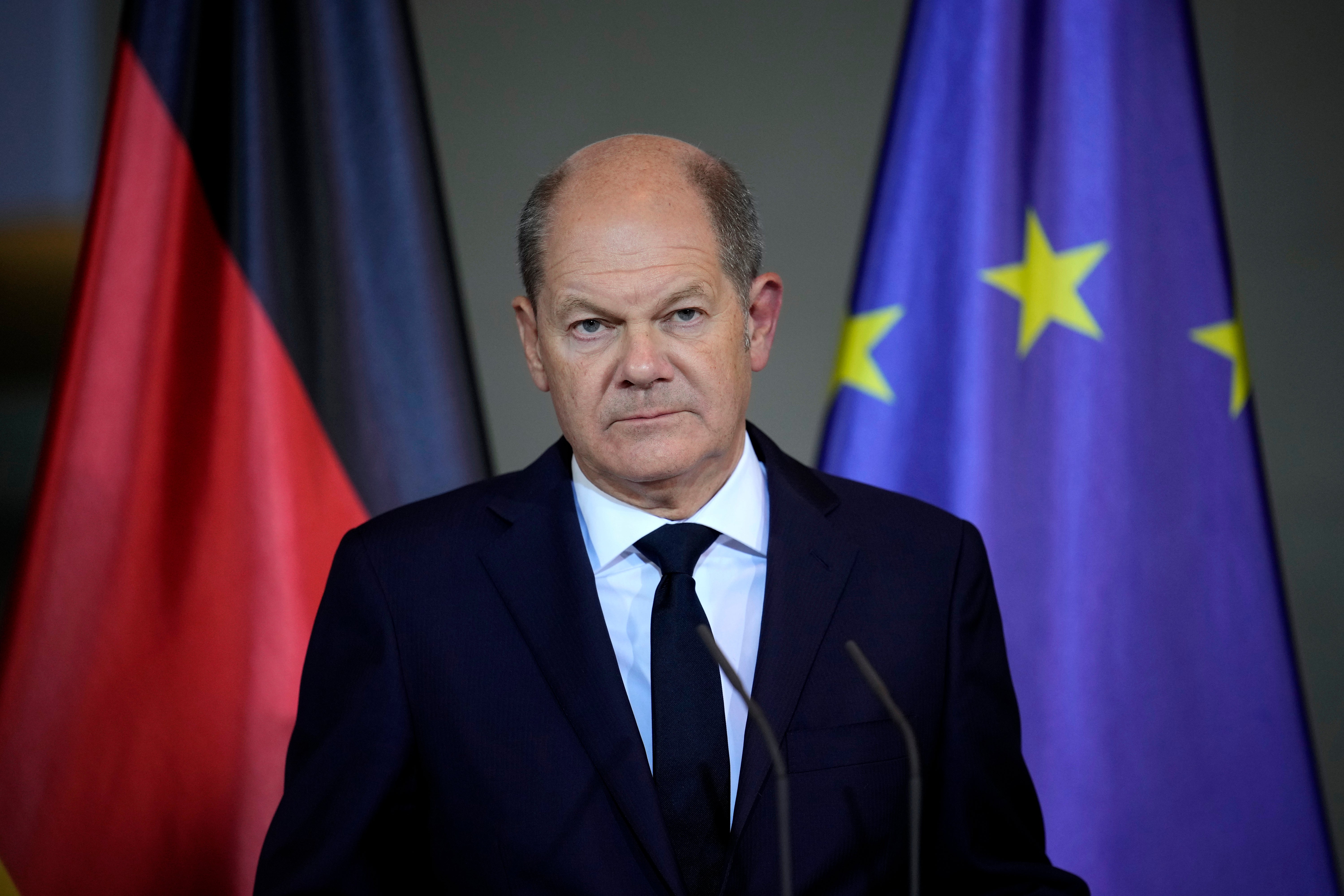Germany's quarrelsome government meets in last-minute effort to find solution for its ailing economy
The leaders of Germany’s quarrelsome governing coalition are meeting again in another last-minute effort to find a joint solution to fix the country’s struggling economy

Your support helps us to tell the story
From reproductive rights to climate change to Big Tech, The Independent is on the ground when the story is developing. Whether it's investigating the financials of Elon Musk's pro-Trump PAC or producing our latest documentary, 'The A Word', which shines a light on the American women fighting for reproductive rights, we know how important it is to parse out the facts from the messaging.
At such a critical moment in US history, we need reporters on the ground. Your donation allows us to keep sending journalists to speak to both sides of the story.
The Independent is trusted by Americans across the entire political spectrum. And unlike many other quality news outlets, we choose not to lock Americans out of our reporting and analysis with paywalls. We believe quality journalism should be available to everyone, paid for by those who can afford it.
Your support makes all the difference.The leaders of Germany’s quarrelsome governing coalition are meeting again on Wednesday in another last-minute effort to find a joint solution to fix the country's struggling economy.
German Chancellor Olaf Scholz of the center-left Social Democrats, Finance Minister Christian Lindner of the pro-business Free Democrats and Economy Minister Robert Habeck of the environmentalist Greens want to boost the economy but are at odds over how to do it.
A meeting of the coalition committee later Wednesday will focus on how the billion-euro hole in the 2025 budget can be plugged and how the German economy can be put back on track.
However, they disagree fundamentally over how to kickstart the economy again, and after weeks of government infighting many Germans wonder if the current government will actually survive the coming 11 months before the next election is due.
Uncoordinated summit meetings and differing proposals by the leaders have fueled the conflict among the coalition partners.
If the leaders fail to reach an agreement later on Wednesday, the government could be on the brink of collapse.
Scholz appealed to all coalition partners to find a solution and prioritize the country over different party convictions.
“As far as the situation of the government’s further work is concerned, it is about feeling committed to the country, not about ideology,” he said Tuesday in Berlin. “And it is clear that we can. In this respect, the question is not whether it can be done at all, but whether it is possible, and everyone has to work on that now."
The Free Democrats have pushed for changes in the country's economic policy, some of which Lindner expressed in an 18-page paper last week that was leaked to the media.
The party categorically rejects tax increases or changes to Germany’s strict self-imposed limits on running up debt, and say it’s time to save money — for example, on benefits for the long-term unemployed.
Politicians on the left want to see massive state investment and reject talk of cutting welfare programs and many other ideas Lindner proposed in his paper last week.
Germany's economy is expected to shrink in 2024 for the second year in a row, or at best stagnate, battered by external shocks and home-grown problems including red tape and a shortage of skilled labor.